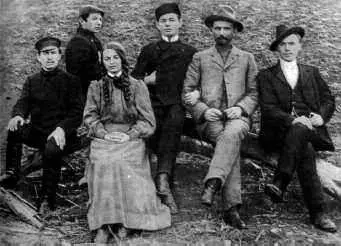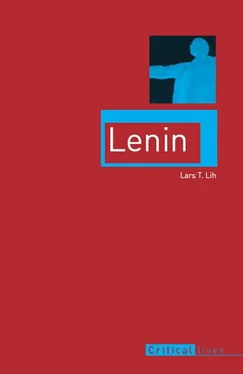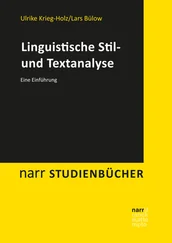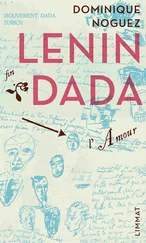Lars Lih - Lenin
Здесь есть возможность читать онлайн «Lars Lih - Lenin» весь текст электронной книги совершенно бесплатно (целиком полную версию без сокращений). В некоторых случаях можно слушать аудио, скачать через торрент в формате fb2 и присутствует краткое содержание. Город: London, Год выпуска: 2012, ISBN: 2012, Издательство: Reaktion Books, Жанр: Биографии и Мемуары, История, на английском языке. Описание произведения, (предисловие) а так же отзывы посетителей доступны на портале библиотеки ЛибКат.
- Название:Lenin
- Автор:
- Издательство:Reaktion Books
- Жанр:
- Год:2012
- Город:London
- ISBN:9781780230030
- Рейтинг книги:3 / 5. Голосов: 1
-
Избранное:Добавить в избранное
- Отзывы:
-
Ваша оценка:
- 60
- 1
- 2
- 3
- 4
- 5
Lenin: краткое содержание, описание и аннотация
Предлагаем к чтению аннотацию, описание, краткое содержание или предисловие (зависит от того, что написал сам автор книги «Lenin»). Если вы не нашли необходимую информацию о книге — напишите в комментариях, мы постараемся отыскать её.
Lenin — читать онлайн бесплатно полную книгу (весь текст) целиком
Ниже представлен текст книги, разбитый по страницам. Система сохранения места последней прочитанной страницы, позволяет с удобством читать онлайн бесплатно книгу «Lenin», без необходимости каждый раз заново искать на чём Вы остановились. Поставьте закладку, и сможете в любой момент перейти на страницу, на которой закончили чтение.
Интервал:
Закладка:
How did Lenin manage to deceive himself so thoroughly? In Lenin’s eyes Malinovsky was a ‘Russian Bebel’, that is, an outstanding party leader of worker origin. He played to perfection a central role in Lenin’s heroic scenario: the ‘purposive worker’ who, inspired by Social Democratic teaching about the mission of the proletariat, was able to inspire others in turn. We have seen how Lenin in What Is to Be Done? dreamed of an ideal party activist who could ‘merge in himself a knowledge of the worker milieu [with] a freshness of socialist conviction’, who could ‘rely on the boundless confidence of the broadest worker mass’ because he himself was boundlessly devoted to the revolution. 36A party populated by Malinovskys would be invincible. No wonder Lenin refused to accept that Malinovsky was a paid actor and not the real thing.
Certainly the ‘purposive worker’ was far from being just a myth – in fact, Malinovsky himself was not a complete fake. He was just a spectacular reminder that real life never seems to confirm our narratives without slipping in an ironic twist.

The daughter of a French opera singer and an English actress, Inessa Armand was an unlikely Bolshevik. Born in Paris, she grew up in Moscow and married the son of a wealthy manufacturer. She and her husband opened a school for peasant children, an activity that later might have constituted a link with Lenin and Krupskaya. After an amicable separation from her husband she became more deeply involved in the Social Democratic underground and was arrested in 1907. She escaped from internal exile and ended up in Paris, where she met Lenin.
Long before Armand’s death in 1920 rumours were circulating about a romantic link between her and Lenin. Many historians believe that recently published correspondence between the two has clinched the case for the existence of an affair. But the evidence is still circumstantial and scepticism on this point is still legitimate. For my part, after reading through the relevant documents from Lenin, Armand and Krupskaya, I find it hard to believe that Lenin and Armand had an adulterous affair.
Armand’s role in Lenin’s life should not be reduced to her alleged stint as ‘Lenin’s mistress’. As a trusted confidante – possibly the only woman outside his family to be part of his inner circle – Armand had full opportunity to see all sides of Lenin’s character. She often had to bear the brunt of his factional infighting. Lenin sent her to represent the Bolsheviks at the 1914 conference in Brussels, where she had to defend an unpopular and marginalized standpoint. Lenin thanked her profusely, saying that he himself would have exploded in anger. 37
But Inessa Armand was also in a position to see Lenin’s determined optimism at close range. In late 1911 the prominent French socialists Paul and Laura Lafargue (Laura was one of Karl Marx’s daughters) committed double suicide because they felt they could no longer be of use to the cause. Lenin spoke at their funeral in Paris, and Armand translated his remarks into French:
We can now see with particular clarity how rapidly we are nearing the triumph of the cause to which Lafargue devoted all his life. The Russian revolution ushered in an era of democratic revolutions throughout Asia, and 800 million people are now joining the democratic movement of the whole of the civilized world. In Europe, peaceful bourgeois parliamentarianism is drawing to an end, to give place to an era of revolutionary battles by a proletariat that has been organized and educated in the spirit of Marxist ideas, and that will overthrow bourgeois rule and establish a communist system. 38
Lenin’s sanguine view of world developments was matched by his excitement about the relative upsurge of 1912–14 in Russia that he saw as the beginning of the bigger and better 1905 he had long been awaiting. His description of May Day strikes and demonstrations in Petersburg in 1913 shows his excitement at the thought that his heroic scenario of class leadership was once again being realized in action. As in the mid-1890s Lenin’s emphasis is on the power of the Social Democratic message to move the masses into action, even when transmitted by small and inadequate technical means. He therefore claimed that although the Social Democratic message in 1913 may have originated in a very small group in Petersburg, its impact was felt all over Russia in ever-widening circles. In response to Menshevik scepticism he described the course of the demonstrations of May 1913 in the following way.
The St Petersburg underground consisted of several hundred workers who were nevertheless (as Lenin writes in ‘May Day Action by the Revolutionary Proletariat’, 1913) ‘the flower of the St Peters burg proletariat… esteemed and appreciated by the entire working class of Russia’. They issue some hasty, poorly printed, and unattractive looking pamphlets. ‘And lo, a miracle!’ – a quarter of a million workers rise up ‘as one man’ in strikes and demonstrations in Petersburg. ‘Singing revolutionary songs, with loud calls for revolution, in all suburbs of the capital and from one end of the city to another, with red banners waving, the worker crowds fought over the course of several hours against the police and the Okhrana [security police] that had been mobilized with extraordinary energy by the government.’
The leaflets and the revolutionary speeches by workers carry the message that a revolution to install the democratic republic is the only way to ensure freedom. This message does not stop at the city limits of Petersburg. The industrial proletariat is able to ‘draw into revolutionary actions the labouring and exploited masses, deprived of basic rights and driven into a desperate situation’. The revolutionary strikes of the Russian proletariat – the mighty weapon it forged for itself in 1905 – are therefore ‘stirring, rousing, enlightening, and organizing the masses of the narod for revolution’. In fact, the May Day strikes and demonstrations will show ‘to the whole world that the Russian proletariat is steadfastly following its revolutionary course’.
Thus, in Lenin’s exalted view, the small Social Democratic underground of Petersburg sent a message heard around the world. And why? – because it told the truth to millions about their hopeless position under tsarism, thus ‘inspiring them with faith in revolutionary struggle’. 39
In 1914, on the eve of war, Lenin wrote to Inessa Armand (in English), ‘Best greetings for the commencing revolution in Russia’. 40A new ‘era of revolutionary battles’ was indeed commencing, and not only in Russia. During the next five years, his heroic scenario would be vindicated on a global scale – or so it seemed to Lenin.
For many Marxists, a purely democratic revolution could be ‘only’ a bourgeois revolution – a necessary step forward, but a frustrating one, since it ushered in a long period of bourgeois class domination. Confining oneself to working for the bourgeois revolution while deferring the socialist revolution was an eminently reasonable self-limitation, but nevertheless it was an emotionally difficult substitute for the real thing. Lenin also accepted completely that the 1905 revolution was no more than a bourgeois, political, democratic one and that its historical meaning was limited to clearing the path for socialist revolution. But emotionally there was for him nothing ‘only’ about the events of 1905. He saw them as a vast national epic – a heroic struggle of the narod to conquer freedom and to regenerate Russia.
Читать дальшеИнтервал:
Закладка:
Похожие книги на «Lenin»
Представляем Вашему вниманию похожие книги на «Lenin» списком для выбора. Мы отобрали схожую по названию и смыслу литературу в надежде предоставить читателям больше вариантов отыскать новые, интересные, ещё непрочитанные произведения.
Обсуждение, отзывы о книге «Lenin» и просто собственные мнения читателей. Оставьте ваши комментарии, напишите, что Вы думаете о произведении, его смысле или главных героях. Укажите что конкретно понравилось, а что нет, и почему Вы так считаете.












